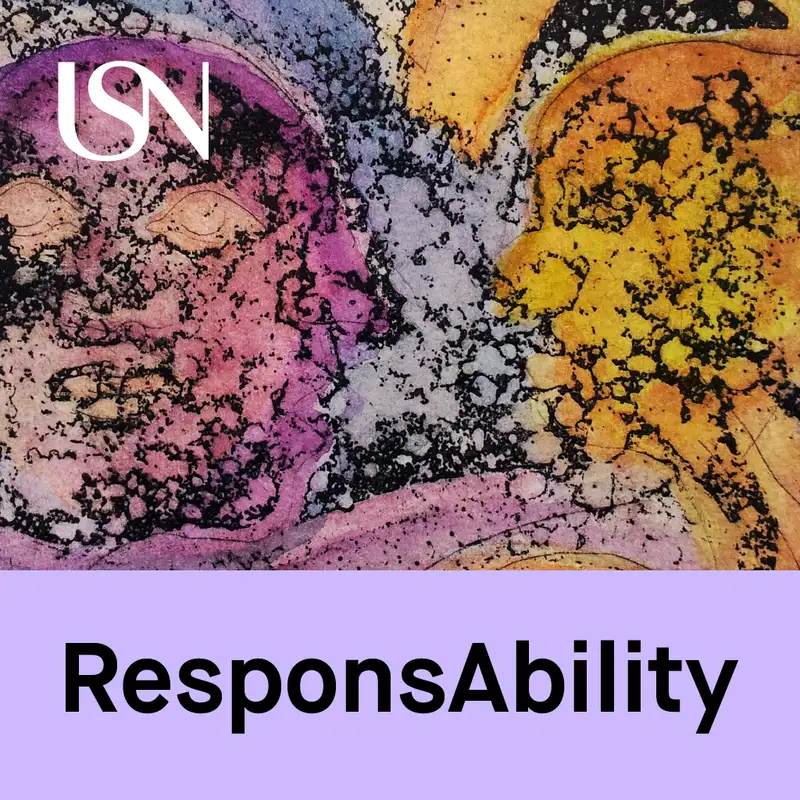#4 Catrine Torbjørnsen Halås | Practical Knowledge and Practice Research
In this episode, prof. Catrine Torbjørnsen Halås, former head of the Center for Practical Knowledge at Nord University, reflects on the relevance of practice research for professional studies like teacher education, social work or nursing. By means of personal experiences, she gives an elaborated account of what practical knowledge is and outlines different methodological approaches, how to develop that kind of knowledge. Last but not least, she explains why it is legitimate to use one’s own practice experience as starting point when conducting practice research.
00:00:44 – Catrine's “personal journey” towards research on practical knowledge
00:02:20 – What is practice research?
00:04:09 – About research on practice, with practice or in practice?
00:05:59 - Differences between humanistic and social science research approaches in professional studies
00:08:39 – What is practical knowledge?
00:13:48 – Your own experience as valuable starting point for practice research
00:16:52 – What kind of methodologies can be used in order to develop practical knowledge?
00:21:03 – The role of unease in practice research
00:26:49 – To what extent is good practice, and with that practical knowledge, a question of the practitioner’s responsibility?
00:30:08 - How should we educate practitioners that are able to take responsibility?
00:00:44 – Catrine's “personal journey” towards research on practical knowledge
00:02:20 – What is practice research?
00:04:09 – About research on practice, with practice or in practice?
00:05:59 - Differences between humanistic and social science research approaches in professional studies
00:08:39 – What is practical knowledge?
00:13:48 – Your own experience as valuable starting point for practice research
00:16:52 – What kind of methodologies can be used in order to develop practical knowledge?
00:21:03 – The role of unease in practice research
00:26:49 – To what extent is good practice, and with that practical knowledge, a question of the practitioner’s responsibility?
00:30:08 - How should we educate practitioners that are able to take responsibility?
Further literature:
- Halås, C.T. & Fuglseth, K.S. (2021): Fagområdet praktisk kunnskap. In: Fuglseth, K.S. & Halås, C.T. (eds.): Innføring i Praktisk Kunnskap. Anerkjennende, kritisk og konstruktiv praksisforskning. Oslo: Universitetsforlaget.
- Halås C.T, Kymre, I.G and Steinsvik, K. (eds) (2017): Humanistiske forskningstilnærminger til profesjonspraksis. Gyldendal Akademisk.
- Halås, C.T (2023) Jakob Meløe’s Praxeology – an ethnographic approach to research in practical knowledge . Antologikapittel i C. Cederberg, K. Fuglseth & E.vd Zande (eds) "Exploring practical knowledge. Life-World Studies of Professionals in Education and Research. Brill.
- Halås, C.T (2022) Kunnskapsreflektert praxis som tilnærming til å skape sammenheng mellom praktisk og teoretisk virksomhet i sosialt arbeid . i Ø. Henriksen, A. Solstad & G.W. Øydgaard. Sammenhenger i sosialt arbeid. Universitetsforlaget.
- Halås, C.T & McGuirk, J (2021) Det vitenskapelige essayet i profesjonsforskning: en kritisk utprøvende metode. Tidsskrift for psykisk helsearbeid: Volum 18, s. 5-14. https://doi.org/10.18261/issn.1504-3010-2021-01-02
- Halås, C.T & Lombholdt Herholdt, S.M Podcast about writing essays: https://nord.cloud.panopto.eu/Panopto/Pages/Viewer.aspx?id=5dd3a0f6-39ef-4853-a8c2-b1370076f1d5
